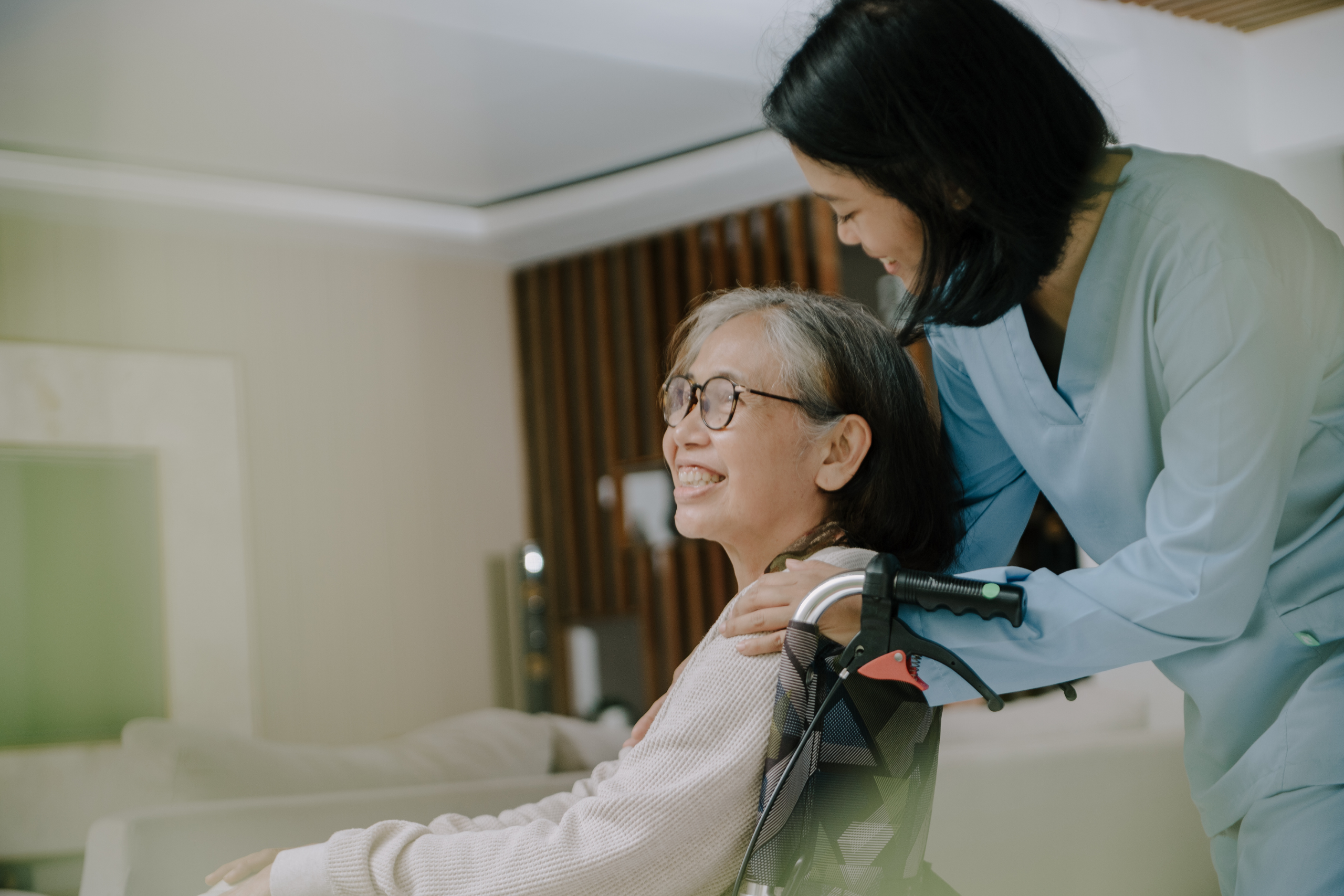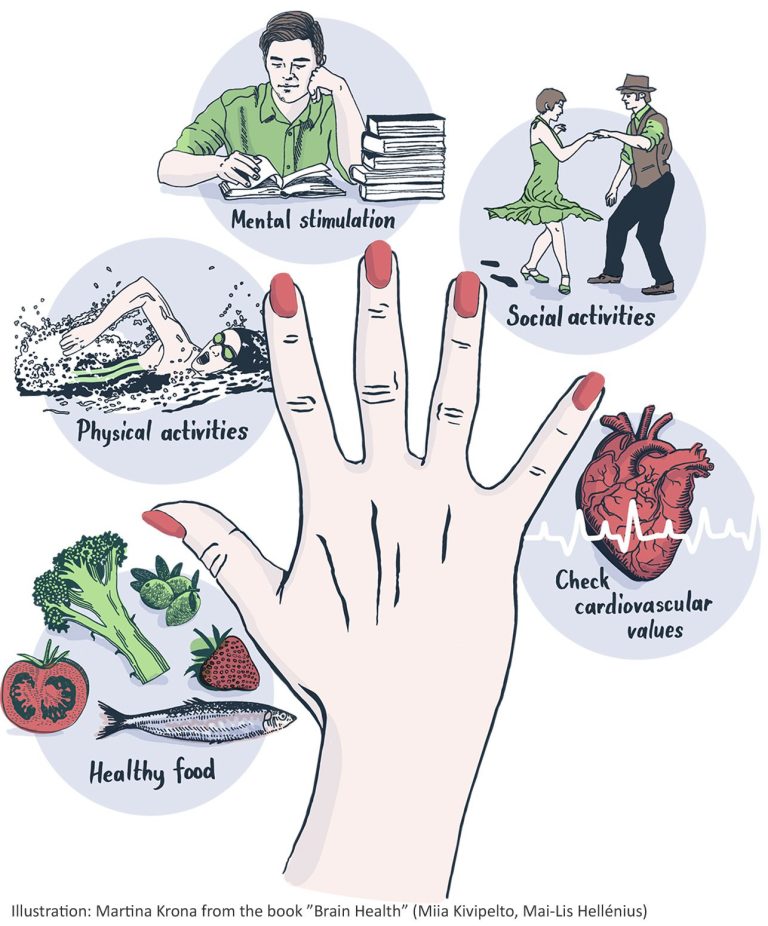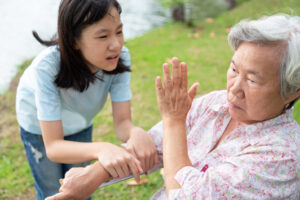
Playback speed:
The Finnish Geriatric Intervention Study to Prevent Cognitive Impairment and Disability (FINGER) model is a holistic approach that focuses on lifestyle changes rather than medication. It has gained prominence as a proactive measure against cognitive impairment, underlining the significance of lifestyle interventions in maintaining brain health. Its development has paved the way for a shift in how we perceive and address cognitive decline, embracing a more integrated and preventive strategy.
Understanding Cognitive Decline
Cognitive decline refers to the gradual loss of cognitive abilities, which can affect one’s memory, reasoning, and problem-solving skills. Some cognitive decline is expected with age, but significant cognitive decline can indicate mild cognitive impairment or more severely, Neurocognitive disorders (Dementia). The symptoms often start subtly, like forgetting appointments or struggling with problem solving, but can eventually impact one’s daily life and independence.
It is crucial to prevent cognitive decline to maintain quality of life, allowing individuals to engage fully in personal and social activities. By focusing on prevention, we can delay or even avoid the onset of severe cognitive impairments, ensuring a more vibrant life as we age.
Core Principles of the FINGER Model
The FINGER model is built upon five core components:
- Nutrition: A balanced diet that is rich in fruits, vegetables, whole grains, and lean proteins, which supports cognitive function.
- Physical Activity: Regular activities, such as walking, can improve blood flow to the brain and the growth of new neural connections.
- Cognitive Training: Activities like puzzles and memory games can keep the brain active and engaged.
- Social Engagement: Such engagement provides mental stimulation and emotional support, which are essential for maintaining cognitive health.
- Monitoring Risk Factors Related to Cardiovascular Disorders: Controlling of cardiovascular risk factors like blood pressure, cholesterol, blood glucose, and body weight is also important for brain health.

Each of the above components play a vital role in promoting brain health and preventing cognitive decline.
Implementing Lifestyle Measures to Maintain Social Relationships and Keeping the Brain Actively Engaged
Integrating the FINGER model into daily life does not have to be daunting or reinventing one’s daily routine. One can start with small, manageable changes. For instance, including more fruits and vegetables into meals, or frequent brisk walks. These simple steps can make a significant difference over time.
In addition to mental and social activities, integrating physical exercise into one’s routine is crucial in maintaining overall wellbeing. Regular physical activity does not only improve cardiovascular health it also enhances cognitive function by increasing blood flow to the brain.
Whether it is a brisk walk in a park, a yoga session, or a dance class, find an activity that you enjoy and commit to it regularly. Exercise releases endorphins, which can improve mood and reduce stress level, further supports cognitive health. One should aim for at least 150 minutes of moderate aerobic activity each week, as recommended by health experts.
A balanced diet rich in fruits, vegetables, whole grains, lean proteins, and healthy fats provides essential nutrients your brain needs to function optimally. Foods high in antioxidants, like berries, and omega-3 fatty acids found in fish, such as salmon, are particularly beneficial.
Staying hydrated is equally important, as mild dehydration can affect your concentration and cognitive abilities. One should consider consulting a nutritionist to tailor a diet plan that meets one’s specific needs and preferences, fuelling both your body and mind effectively.
Integrating these lifestyle changes lays a strong foundation for long-term cognitive vitality.
A Promising Approach for Local Dementia Care
Although the FINGER model emerged from Finland, it has been implemented in various studies worldwide, including Singapore. Its adaptation signifies an encouraging trend, highlighting its potential to enhance Cognitive support care for individuals and families locally.
Contributor’s Profile

Hovi Care provides elderly and elderly and cognitive support care services designed to support seniors in achieving a high quality of life through active ageing and holistic wellness programmes. They combine cognitive, social and physical rehabilitation, to support and to meet individual’s needs.
Website: http://www.hovicare.sg/
- Alzheimer’s Society (2025). Anxiety and Dementia. https://www.alzheimers.org.uk/about-dementia/symptoms-and-diagnosis/anxiety-dementia.
- Barrell, A. (2020). Stress vs. anxiety: How to tell the difference. Medical News Today. https://www.medicalnewstoday.com/articles/stress-vs-anxiety
- Dementia UK. (October, 2022). Managing anxiety and depression in a person living with dementia. https://www.dementiauk.org/information-and-support/health-advice/managing-anxiety-and-depression-in-a-person-living-with-dementia/






